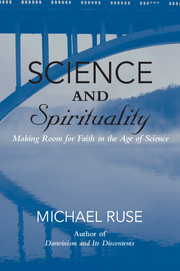Book contents
Eight - Morality, Souls, Eternity, Mystery
Published online by Cambridge University Press: 05 May 2010
Summary
Let us move now through the other items identified as key claims for Christians.
MORALITY
We know that science can tell us much about morality. For the sake of argument, let us take it now that biology can throw considerable light on these issues – moral behavior is ultimately an adaptation put in place by natural selection to make us functioning social beings. And it goes without saying that, in understanding morality, cultural investigations also have a major role to play. We in the Western world think that female circumcision is a cruel mutilation of women and girls. People in many parts of Africa think very differently. People in Canada and in Europe think that capital punishment is cruel and barbaric. People in the United States, especially in the South, think that capital punishment is morally obligated. There should be more of it. However, for all that science is important, we have seen also that ultimately science falls away. Thanks to the insights of David Hume, we know that no scientific justification can be given for moral beliefs. There is no metaethical foundation to be found in nature. This conclusion follows immediately under the mechanical model and, if a little more slowly, also finally under the organic model.
You can at this point opt for some kind of ethical skepticism (about foundations). Moral beliefs and behaviors are adaptations, and there is an end to it.
- Type
- Chapter
- Information
- Science and SpiritualityMaking Room for Faith in the Age of Science, pp. 208 - 233Publisher: Cambridge University PressPrint publication year: 2010

